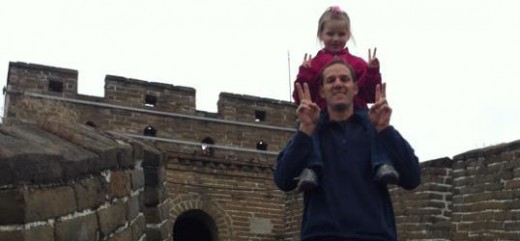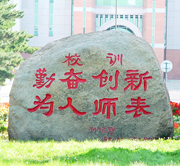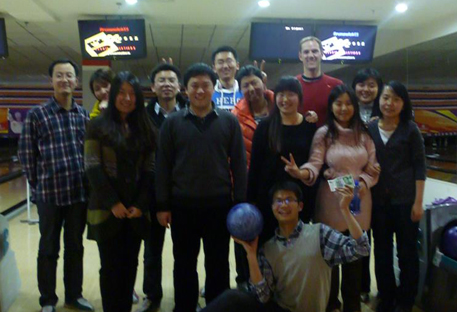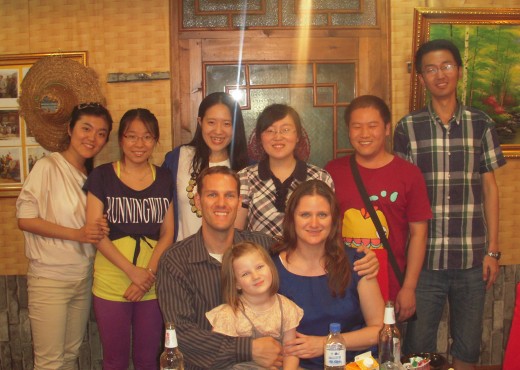
The city of Changchun is the radiant jewel of the Songliao Plain, but never does it shine so bright as when under the breath of the frost-maiden Winter. Icewind tears and whips its path across the Changbai Mountains, settling unto the glade of Jingyuetan and its emerald-colored crescented reflecting pool. The air is cool and fresh, but the haughty aroma of ginseng—one of the three treasures of Dongbei—may yet linger. Even though blessed with a natural beauty, it is a modern city known for its automobiles, cinema, and technology.
For eleven months, Changchun is where our very own Travis Smith called home. Smith, a professor of history, has the distinction of being the first instructor at a junior college to serve as a Fulbright scholar in the People’s Republic of China. The Fulbright Scholarship, which is sponsored by the U.S. government, grants exceptional teachers, who have demonstrated knowledge and leadership, the opportunity to travel to foreign nations. Fulbright’s goal is to, “increase mutual understanding between the people of the United States and the people of other countries.” As in Smith’s case, some of these grantees are to instruct foreign students.
He taught four American history courses at Dongbei Shifan Daxue, colloquially called NENU (Northeast Normal University). For all intents and purposes, he was to be a facility member, conversing with colleagues and contrasting teaching styles. Professor Smith very much enjoyed his work at NENU, for the university’s world history program was ranked by China’s Ministry of Education as one of the best in the entire country.

Course themes for his graduate-level American history classes included major topics in U.S. history, discussions of race and ethnicity, and a special class detailing Chinese experiences in the United States. Smith also gave 16 guest lectures at various institutions around the country, the most common talk being on Chinese immigration and exclusion in America.
There was little in the way of a language barrier at the university. Class was conducted in English. Indeed, most Chinese students begin learning English in their elementary years. However, the fact that his students were those who spoke English as a second language gave him insight on how to improve his skills at communicating and instructing a widely diverse and multicultural student body here at Yuba College.

Professor Smith wasn’t the only one to take something from China, however. He was accompanied by his wife and daughter. For the year that they lived in Changchun, they resided in modest housing. By modest, Travis tells me, the kitchen and bathroom shared a single window! But the smallness of the home facilitated socialization which brought the family a closeness not readily provided by an American lifestyle. In fact, his young daughter was enrolled in a Chinese school during their stay. She has even picked up quite a few Mandarin words.
I had asked Professor Smith on how he thought his students viewed him. He believes they appreciated his refreshing openness when teaching American history without bias or ulterior motive. They liked the fact that he was there to teach this class like any other, for any other. He did not try to sell an ideology or package himself and the material. He was given the “Excellent Foreign Expert Award” by NENU and once had a jovial meal-time celebration for his work where he sat at the table as a guest of honor.

Enthralled by Professor Smith’s journey into such a fabled and sometimes feared land, I had asked him the question, “If there was one important thing you took away from China… what would that be?” He told me that he valued a keen appreciation of being a minority. It allowed him, firsthand, to develop a greater sympathy for minority groups and the ability to interact with people cross-culturally.
Having learned such a great deal about the Chinese and their culture, Professor Smith redesigned his history courses at Yuba College and places some emphasis on relations between the U.S. and Asian countries. He feels China shall grow ever more larger and continue to compete with the U.S. on a global scale and likens their government as “frenemies” as their sphere of influence expands. What Professor Smith has learned in China shall affect how he teaches history this year, next year, and 25 years from now. It’s going to be one helluva roller-coaster watching American-Chinese relations play out for that quarter of a century.
Smith will share his story at a Crossing Borders, Building Bridges event on September 26, at the Yuba College Sutter County Center.
Note: This article was featured in the Prospector Fall 2013 print edition.
I come from a long line of yokels, mostly fishermen and truckers. Some then, find it odd that I am an aspiring economist and sociologist. The way I see it: my family’s tales of the road and the river humbled me, yet caused a thirst for adventure . I also like to write feature stories about interesting places and the beautiful people that live there. Like Yuba-Sutter.
Comment Policy: Comments are welcomed and encouraged. However, the editorial board reserves the right to edit or delete, without notice, any comments submitted to the blog. For more details, see our full Comment Policy.